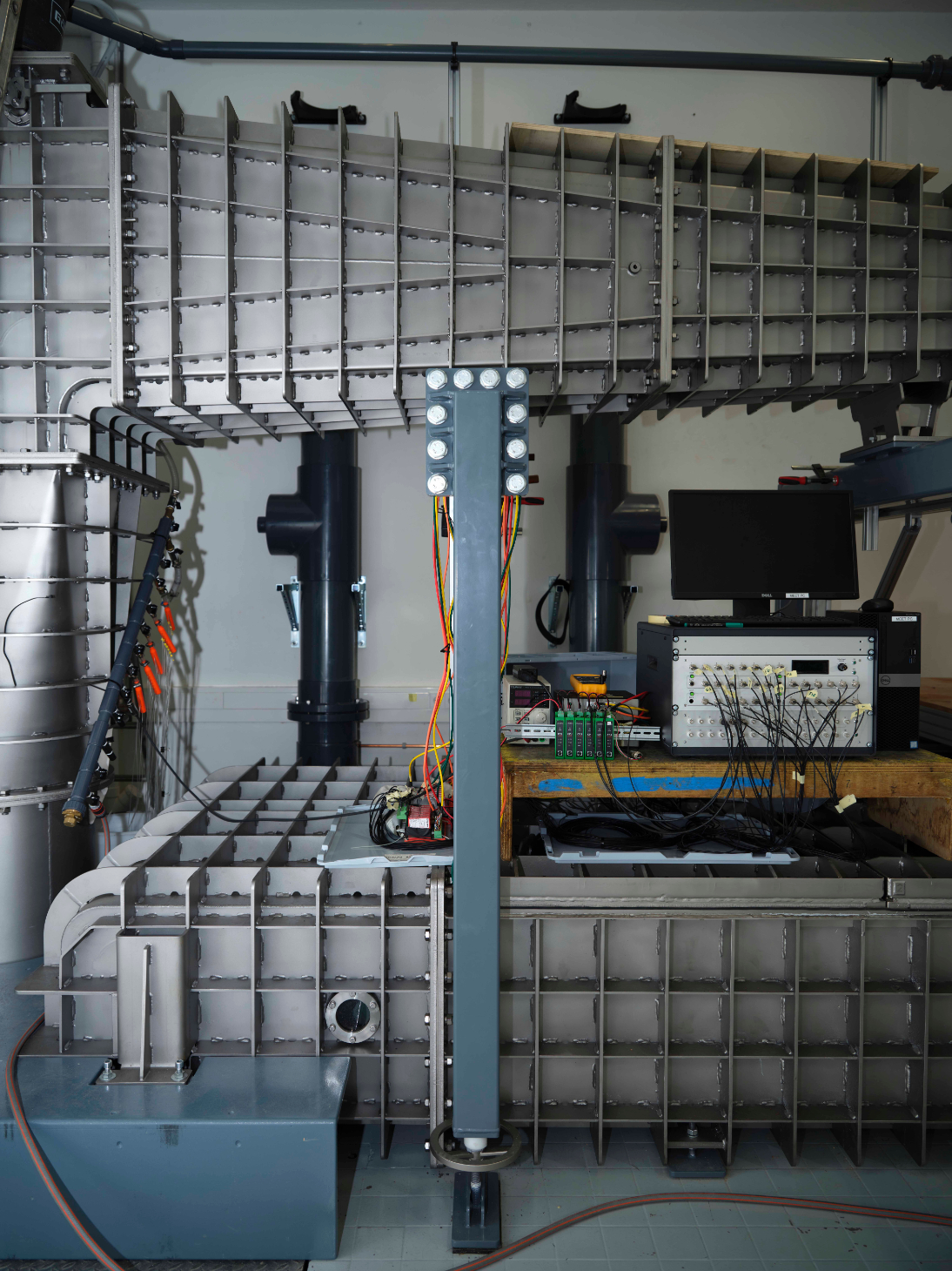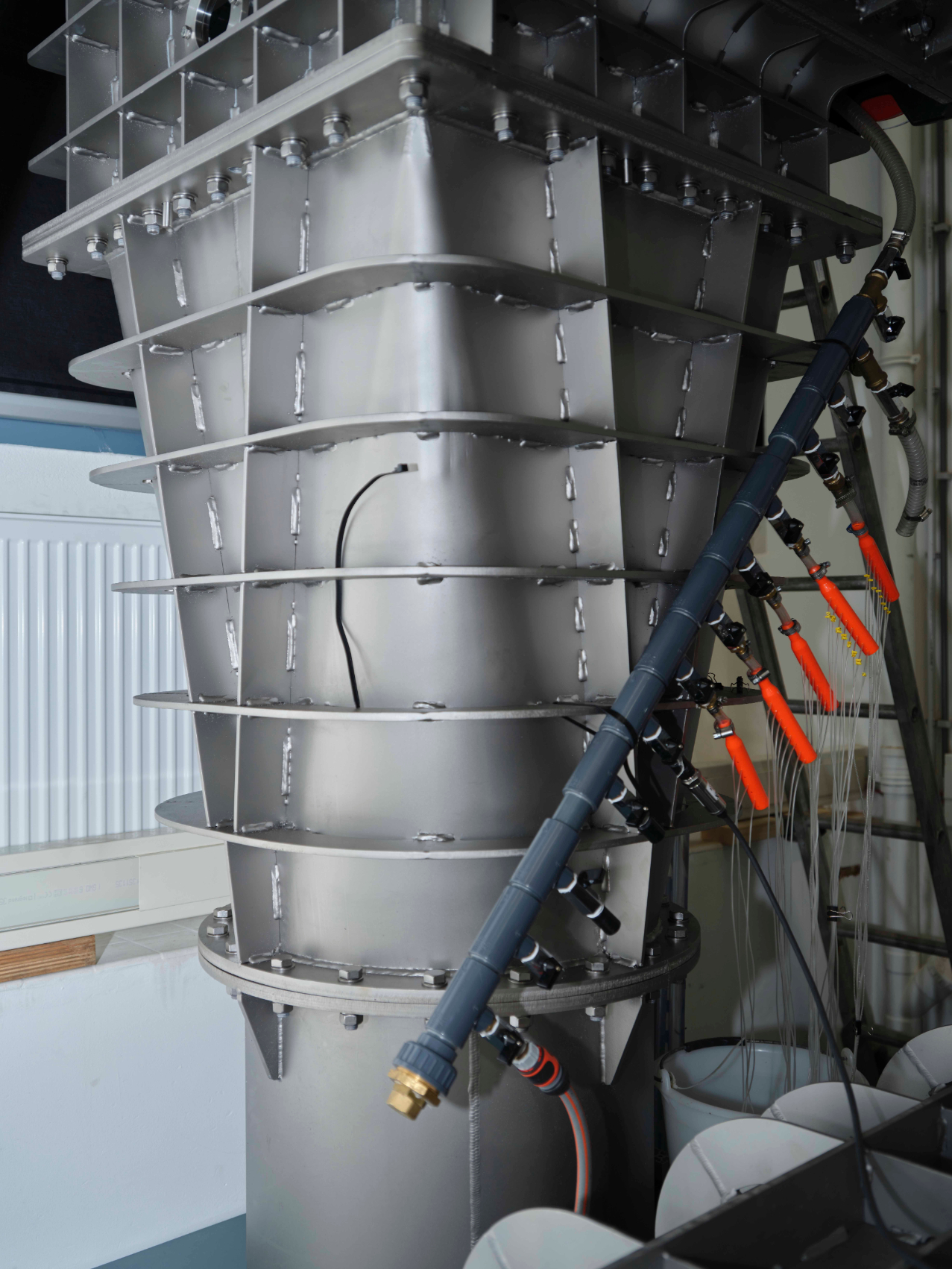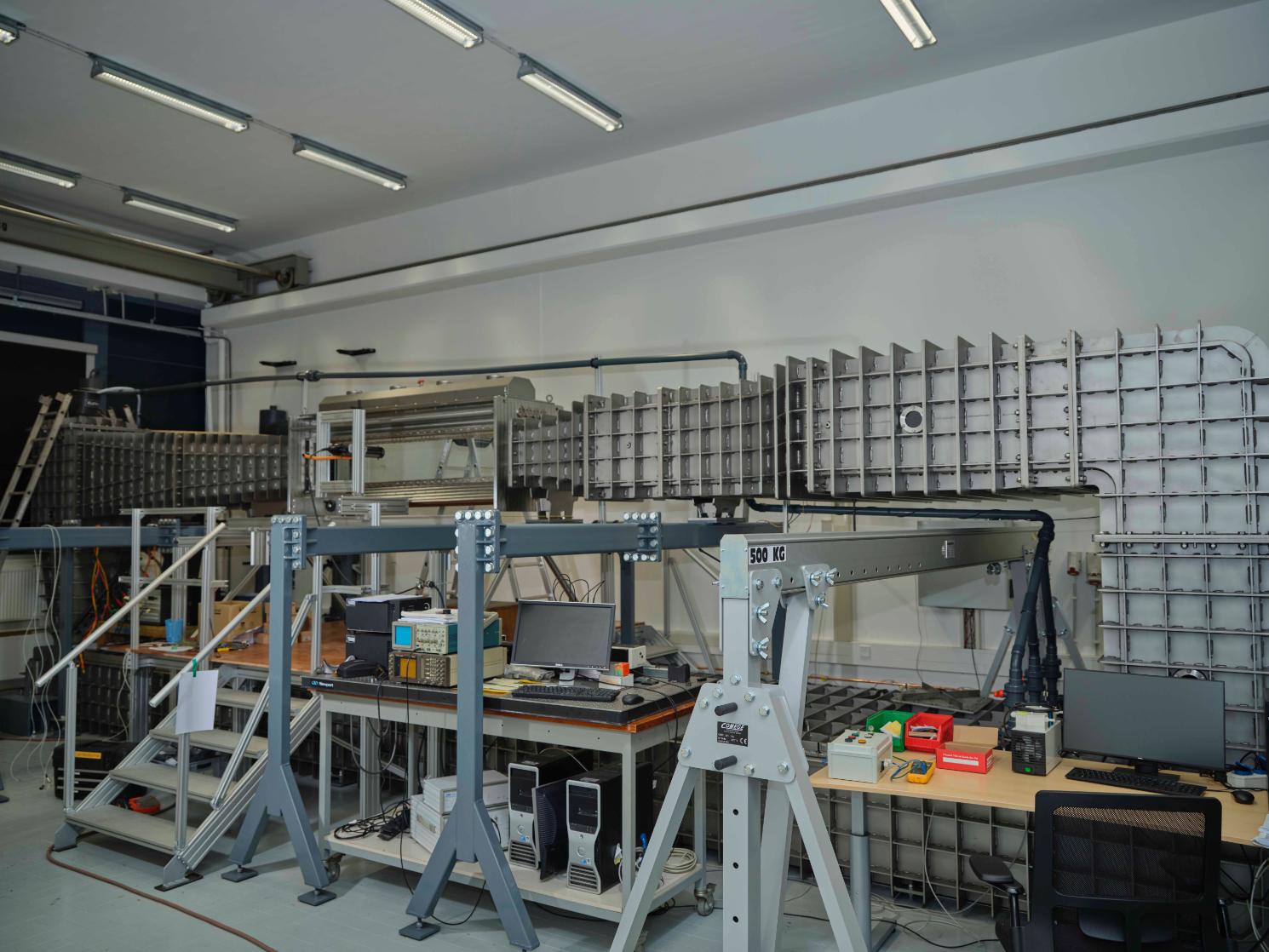New TU Delft cavitation tunnel should enhance vessel efficiency and reduce disturbance
This week the new cavitation tunnel will be opened at TU Delft. The research in this facility, officially called the Multi Phase Flow Tunnel (MPFT), largely focuses on two topics: the problem of cavitation in vessel propellers, on the one hand, and the potential of air lubrication in vessels, on the other.
Cavitation
Cavitation is a familiar and important problem in vessels. Large water vapour bubbles can form in the vicinity of vessel propellers, which can then implode with force. Researcher Cornel Thill of TU Delft (3mE faculty): ‘The implosion generates a shock wave as well as noise. This phenomenon can cause serious damage to the propeller blades, but the evidence is mounting that it can also cause a disturbance for marine life, such as fish and whales. It is therefore important to prevent the harmful side effects of cavitation as much as possible. This new research facility will allow us to respond much more effectively.’
Air lubrication
Another primary goal of the new cavitation tunnel is to fundamentally investigate air lubrication in vessels. Lina Nikolaidou focuses on this in her PhD research: ‘One of the important ways currently being investigated to reduce the resistance of vessels, and thus fuel consumption and carbon emissions, is to apply air lubrication, a layer of air (bubbles) under the vessel. Commercial parties are already applying this and conducting further research.’
Although air lubrication has been studied for some time now, we still don’t have a true understanding of the underlying mechanisms. ‘In laboratory experiments, air lubrication appears to be very efficient, but this hasn’t always been successfully translated in the real world. Moreover, almost all the experiments were conducted in freshwater. One of the things I want to further investigate is the connection between air lubrication and the chemical water quality, for example the salinity. From sparse results we know that water quality can have a major effect.’
The Multi Phase Flow Tunnel in Delft is one of the first facilities in the world that can systematically adjust water quality, both chemical and physical, for this type of research.
Small volume
The volume of the new tunnel is about 17 m3, which is small for a modern cavitation tunnel with water quality control. ‘But this small volume also makes it possible to adjust the chemical quality of the water, especially the salinity,’ Thill says. ‘We were able to keep the volume so small because we adopted a slightly different philosophy. Not all air bubbles are filtered out first, but only those that are larger than a certain diameter (about 100 micrometres).’
The tunnel essentially has two test sections, one for cavitation research, which is 0.3 x 0.3 x 2.13 metres in size with a maximum water velocity of 12 m/s; the other test section is optional and designed for other research, with dimensions of 0.5 x 0.5 x 5 metres and a maximum flow velocity of 4.3 metres per second.
The opening of the new facility will take place on Tuesday 21 June in the presence of guests from industry and science.






